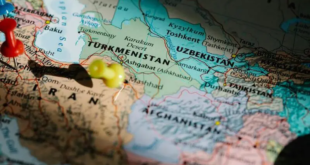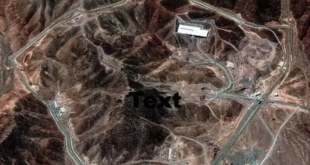 Iran said it had drawn up a plan to restore stability to Iraq, including suggestions for the expulsion of private security firms and the integration of militias into the security forces. Iran raised the proposal at a high-level gathering of Iraq’s neighbors and world powers in Istanbul on Sunday. The proposal suggests that troops from Iran, Syria and other Arab states replace US forces in Iraq.
Iran said it had drawn up a plan to restore stability to Iraq, including suggestions for the expulsion of private security firms and the integration of militias into the security forces. Iran raised the proposal at a high-level gathering of Iraq’s neighbors and world powers in Istanbul on Sunday. The proposal suggests that troops from Iran, Syria and other Arab states replace US forces in Iraq.
“As top diplomats from two dozen countries and international organizations took turns to discuss how to improve Iraq’s security, Iranian Foreign Minister Manouchehr Mottaki suggested that a coalition from neighboring Arab states take over from US forces, conference participants said.”
“The Iranian delegation distinguished itself again today with the most extraordinary proposal,” said David Satterfield, the State Department’s top coordinator on Iraq, who accompanied US Secretary of State Condoleezza Rice at the Istanbul meeting.
Ryan C. Crocker, the US ambassador to Iraq, who also attended the session, said “Mr. Mottaki specifically identified Iran and Syria as potential troop contributors.”
Later this week, Iranian Foreign ministry Spokesman Seyed Mohammad Ali Hosseini revealed some parts of the plan raised at the weekend conference in Istanbul. But this was the first time its details had been made public.
“This has been proposed by Iran as a general plan for others to comment on,” Hosseini told reporters.
“It is a new plan that was suggested at the Istanbul meeting,” he said.
According to Hosseini, the plan emphasizes the necessity for driving armed militant groups out of Iraq, and also for expelling the various private security firms working there.
“Particularly Blackwater,” said Hosseini, referring to the US firm whose guards were involved in a shooting incident September 16 in Baghdad that left 17 Iraqis dead.
The plan also proposes the integration of some militia groups into the security forces. However there was no mention of any names.
“All the militias who have not cooperated with any organized terrorist groups should be forgiven and give up their arms. The government of Iraq should make use of some of them in the military and the police,” Hosseini said.
Other proposals include a two-year suspension of efforts to find solutions to thorny problems such as oil sharing, the status of provinces and the multi-ethnic city of Kirkuk.
An amnesty for prisoners detained for “acting against the government” and the opening of embassies by all neighboring countries should also take place.
Earlier on the sidelines of the conference in Turkey, US Secretary of State met with Syrian Foreign Minister Walid Moallem, but they spent most of their time discussing the upcoming presidential election in Lebanon, Satterfield said.
Crocker said he expects to hold more talks on Iraq’s security with Iranian diplomats in Baghdad in the near future, following two rounds earlier this year.
During a three-way meeting, Iraqi Foreign Minister Hoshyar Zebari promised “a number of visible measures implemented on the ground to show our seriousness” about hunting down and arresting PKK – the Kurdistan Workers’ Party – leaders.
He did not rule out joint military action with Turkey against the PKK.
Iraqi Prime Minister Nouri al-Maliki met in Istanbul with Turkish Prime Minister Recep Tayyip Erdogan, who is scheduled to visit President Bush at the White House on Monday.
“The prime minister renewed the willingness of the Iraqi government to take steps to isolate the terrorist PKK, prevent any help reaching its members, chase and arrest them, and put them in front of the Iraqi judiciary because of their terrorist activities,” Maliki’s office said.
The Turkish parliament voted last week to authorize Turkish troops to cross the border into northern Iraq to root out an estimated 3,000 PKK guerrillas. Nearly 40,000 Turks have been killed since the PKK took up its armed struggle for Kurdish self-rule in southeast Turkey in 1984.
 Eurasia Press & News
Eurasia Press & News

